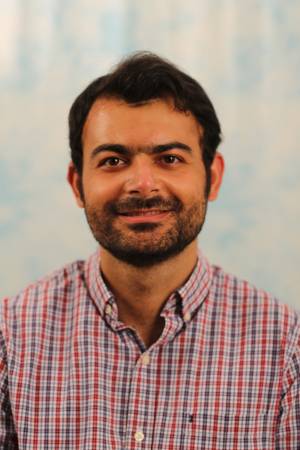PhD Speaking Qualifier
Kernel Density Decision Trees
Abstract We propose kernel density decision trees (KDDTs), a novel fuzzy decision tree (FDT) formalism based on kernel density estimation that improves the robustness of decision trees and ensembles and offers additional utility. FDTs mitigate the sensitivity of decision trees to uncertainty by representing uncertainty through fuzzy partitions. However, compared to conventional, crisp decision trees, [...]
Energy-based Joint Pose Estimation for 3D Reconstruction
Abstract: In this talk, I will describe a data-driven method for inferring camera poses given a sparse collection of images of an arbitrary object. This task is a core component of classic geometric pipelines such as structure-from-motion (SFM), and also serves as a vital pre-processing requirement for contemporary neural approaches (e.g. NeRF) to object reconstruction. [...]
NeRF for Robotics
Abstract: In this talk I'll describe how recent advances in neural rendering and novel view synthesis - namely NeRF - can be leveraged by robotic agents to improve performance in manipulation tasks. Specifically, I'll argue that NeRF can enable robotic policies to: (1) generalize to new viewpoints; (2) perceive specular and reflective surfaces in a [...]
Robust Reinforcement Learning via Genetic Curriculum
Abstract: Achieving robust performance is crucial when applying deep reinforcement learning (RL) in safety critical systems. Some of the state of the art approaches try to address the problem with adversarial agents, but these agents often require expert supervision to fine tune and prevent the adversary from becoming too challenging to the trainee agent. While [...]
Mouth Haptics in VR using a Headset Ultrasound Phased Array
Abstract: This talk is the same one I will be presenting at the ACM CHI Conference on Human Factors in Computing Systems on May 2nd. Paper abstract: Today’s consumer virtual reality (VR) systems offer limited haptic feedback via vibration motors in handheld controllers. Rendering haptics to other parts of the body is an open challenge, [...]
TIGRIS: An Informed Sampling-based Algorithm for Informative Path Planning
Abstract: In this talk I will present our sampling-based approach to informative path planning that allows us to tackle the challenges of large and high-dimensional search spaces. This is done by performing informed sampling in the high-dimensional continuous space and incorporating potential information gain along edges in the reward estimation. This method rapidly generates a [...]
Trajectory Optimization for Thermally-Actuated Soft Planar Robot Limbs
Abstract: Practical use of robotic manipulators made from soft materials requires generating and executing complex motions. We present the first approach for generating trajectories of a thermally-actuated soft robotic manipulator. Based on simplified approximations of the soft arm and its antagonistic shape-memory alloy actuator coils, we justify a dynamics model of a discretized rigid manipulator [...]
Time-of-Flight Radiance Fields for Dynamic Scene View Synthesis
Abstract: Neural networks can represent and accurately reconstruct radiance fields for static 3D scenes (e.g., NeRF). Several works extend these to dynamic scenes captured with monocular video, with promising performance. However, the monocular setting is known to be an under-constrained problem, and so methods rely on data-driven priors for reconstructing dynamic content. We replace these [...]
Combining vision-based tactile, proximity, and global sensing for robotic manipulation
Abstract: I will begin by describing our work on visual servoing a manipulator and localizing objects using a robot-mounted suite of vision and vision-based tactile sensors, our results, algorithms used, and lessons learned. We show that by collocating tactile, and global (e.g. an RGB(D) camera) sensors, our setup can perform better than using each type [...]
Design, Modeling and Control for a Tilt-rotor VTOL UAV in the Presence of Actuator Failure
Abstract: Providing both the vertical take-off and landing capabilities and the ability to fly long distances to aircraft opens the door to a wide range of new real-world aircraft applications while improving many existing applications. Tiltrotor vertical take-off and landing (VTOL) unmanned aerial vehicles (UAVs) are a better choice than fixed-wing and multirotor aircraft for [...]









